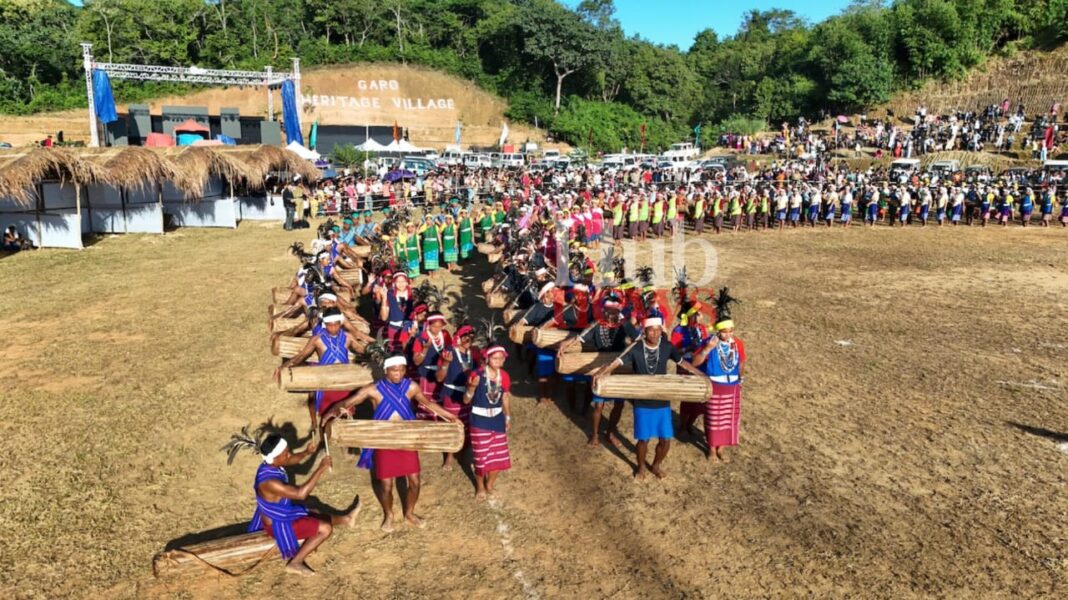Tura, Nov 9: The 48th edition of the 100 Drums Wangala Festival, the biggest and most colourful festival of the Garo Tribe, came to a grand conclusion after reaching an electrifying crescendo with the rhythmic beats of 100 drums reverberating through the Chibragre Hills on Saturday.
The third and final day of the vibrant festival witnessed tourists from far and beyond including France, Belgium, Germany, Canada, Tamil Nadu, Pune, West Bengal, and Assam landing at the permanent site of Garo Heritage Village at Wangala A’dam in West Garo Hills to witness the glory of the Garo culture and enrich themselves with rituals of the tribe.
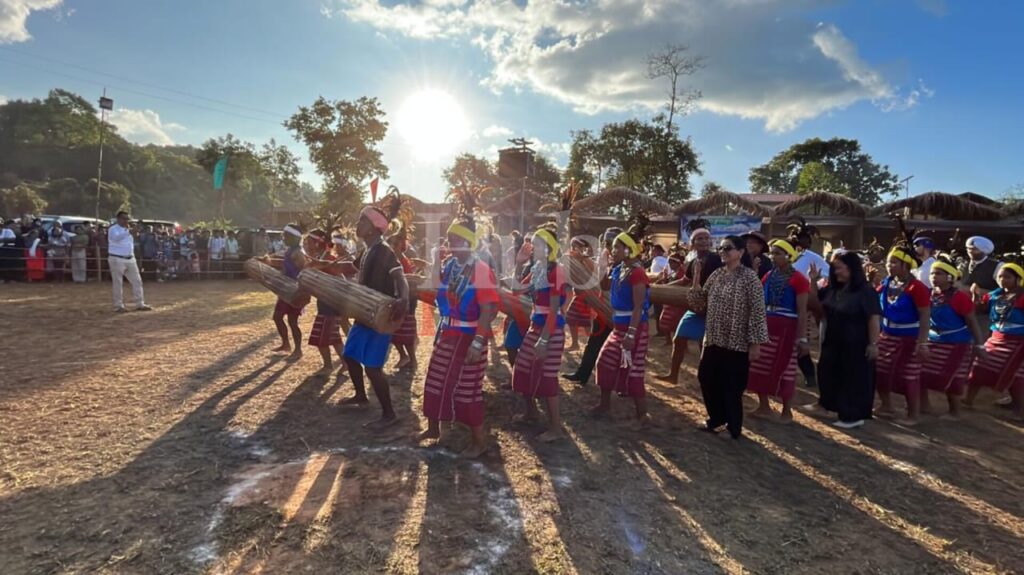
The highlight of the day, and the festival, was the competition for the best Wangala dance troupe, which saw 10 dance contingents in the fray. They were: Gondenggre, Sadolbra, Chibragre, Chidaogre, Dalbenggre, Mikalbra, from West Garo Hills, Rapdikgre from East Garo Hills, Wanokdamgre from North Garo Hills, Chepagre and Bangkabra from South West Garo Hills Districts.
The winner of this year’s wangala competition is Chidaogre followed by Gondenggre and Dalbengre dance troupes.
It may be mentioned that the 100 Drums Wangala festival is the post-harvest festival of the Garos, consisting of various thanksgiving rituals followed with merrymaking, music and dance.
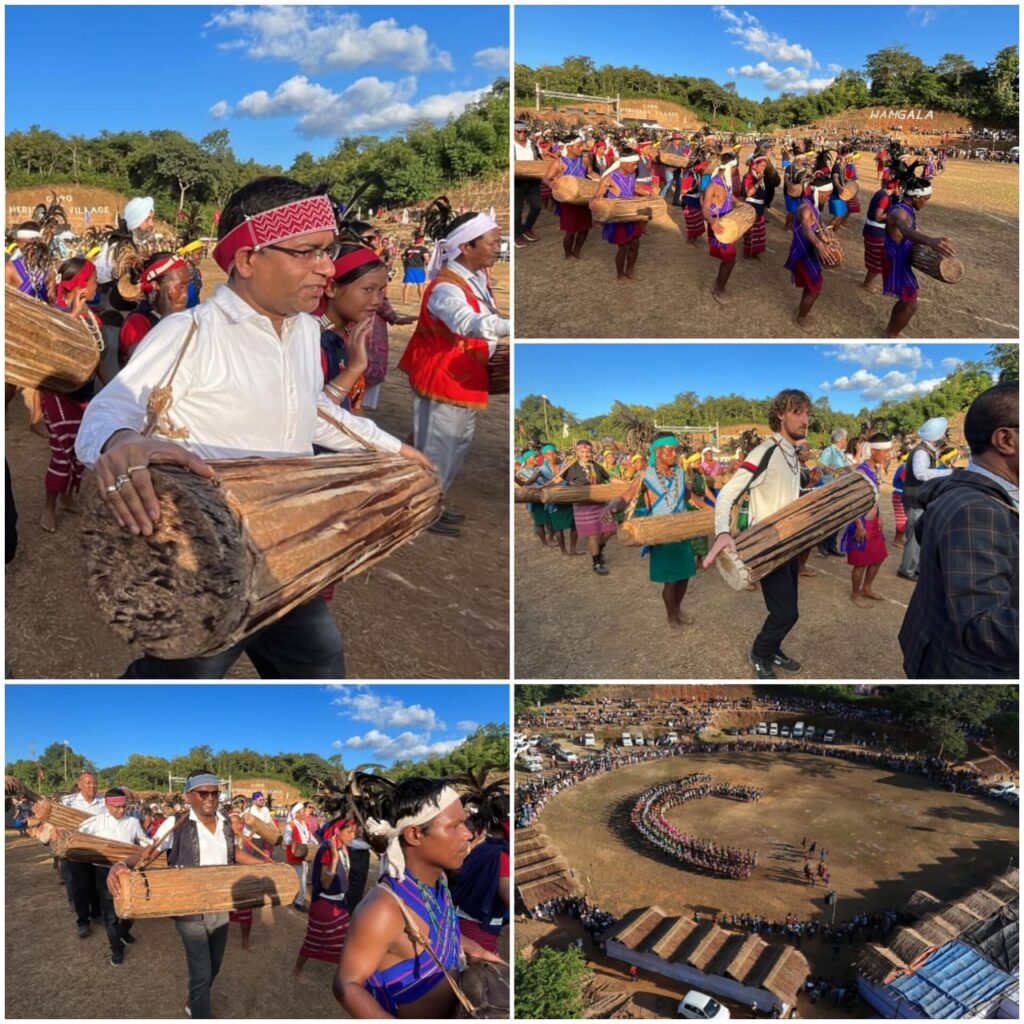
A day ahead of the 100 drums Wangala dance, which is on the final day of the festival, an important spiritual ceremony called Rugala is performed by the Nokma (A Village Chief) in which the offering of the first hand special rice-beer along with cooked rice and vegetables are given to Misi Saljong, the Giver and Sa∙sat So∙a ceremony or burning of the incense at the pillar of his house performed on the next day to mark the beginning of weeklong Wangala festival.
The Wangala Anthem, “Dimdim Dimchong Dachichong” which is the age old popular folk song composed by Late Millickson K Sangma is sung every day of the festival.
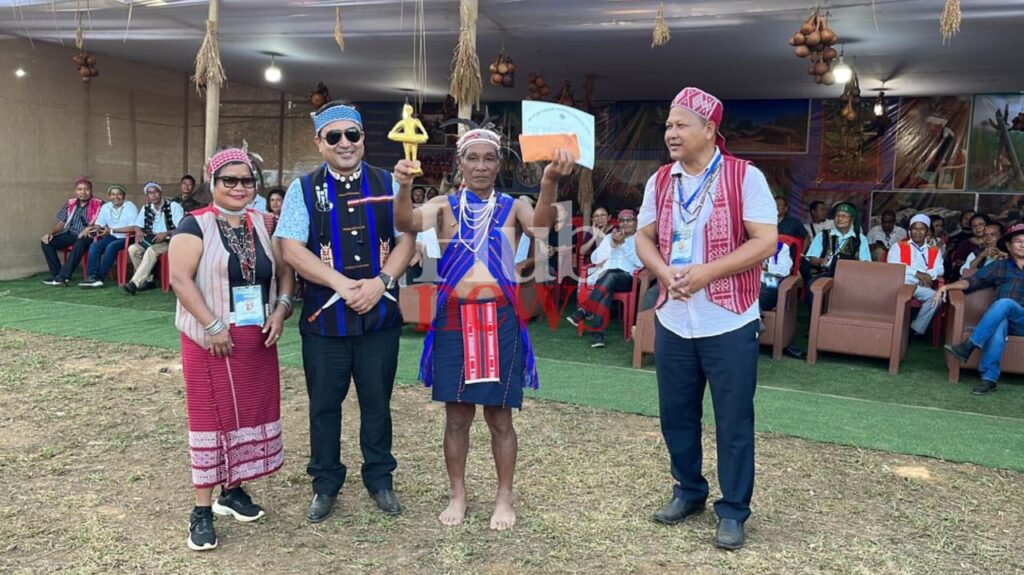
Speaking on the occasion as Chief Guest, Regional Director, North East, Ministry of Tourism, Govt. of India, Anil Oraw, expressed his gratitude and lauded the wangala committee members for their effort and dedication in preserving the authentic culture and traditions of the community and also said that the festival was well organized with perfect venue set up far better than other festivals. Calling everyone to enjoy the festival with cultural fervour, he said that people especially youth try to look forward towards the West but reminded everyone that the culture and traditions of our forefathers are more important and we should live and follow these traditions in future.
Highlighting the importance of this traditional festival, the Chief Guest also ensured to extend his support from the Ministry of Tourism in the coming years.
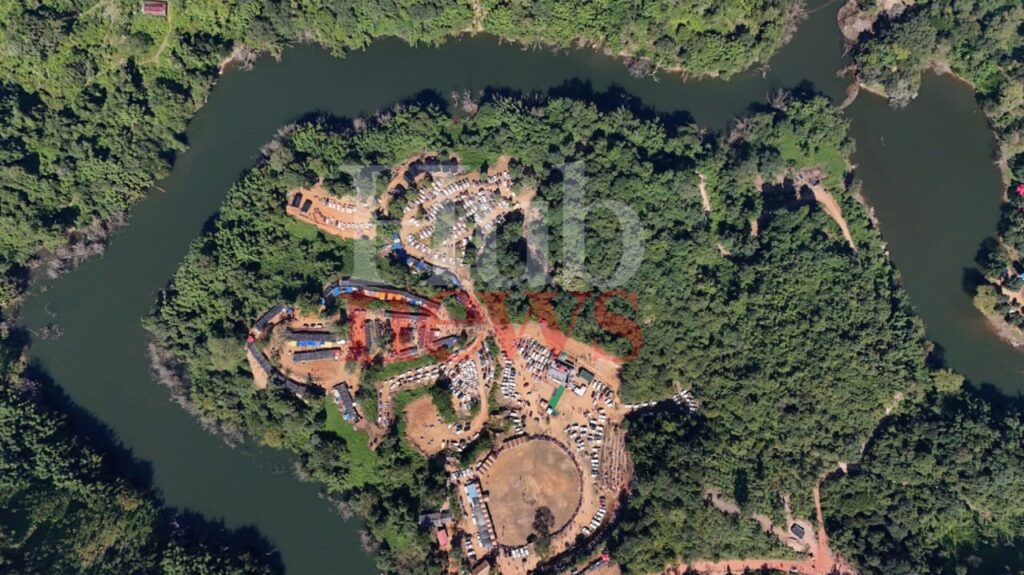
While speaking as the Guest of Honour for the festival, Director, North East Zone Cultural Centre (NEZCC), Ministry of Culture, Prasanna Gogoi, said people should not forget their roots and identity of their forefathers and urged, especially the youth, to understand and preserve the culture and identity for future generations. He also insisted that everyone should learn the cultural practices and rituals and take the festival to greater heights in future.
West Garo Hills Deputy Commissioner, Jagdish Chelani also took the effort to address the gathering in Garo language and elaborated on the importance and significance of the Wangala festival.
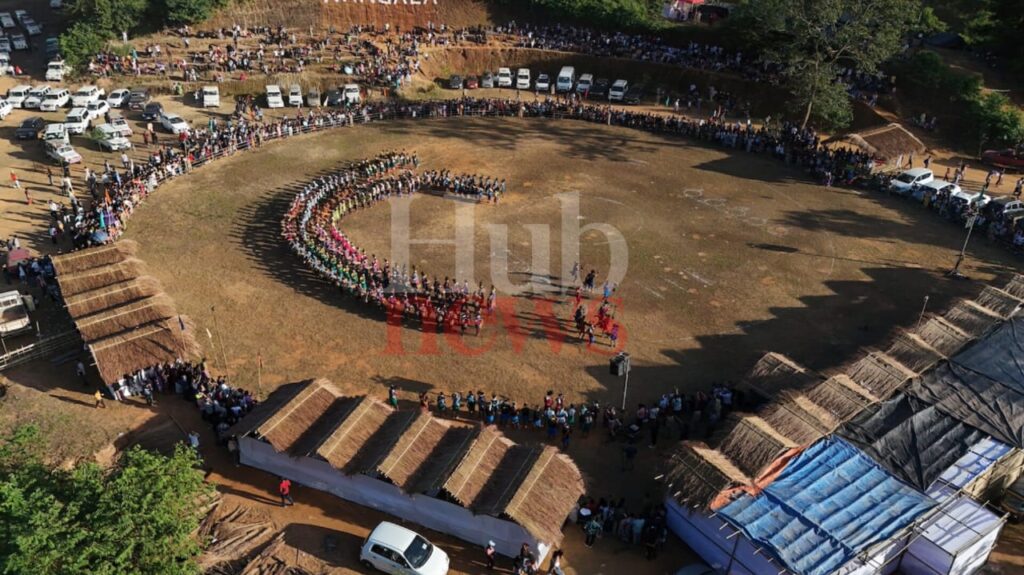
Stating that Wangala is the biggest festival of the Garos, Chairman of the Wangala Committee, Ronald Rikman Sangma, highlighted the tradition and rituals of the Wangala festival and called each one from the community to support and cooperate in preserving the culture and traditions of their forefathers.

Meanwhile, the Second Edition of the Krimkro Music Festival 2024, a vibrant celebration of cultural heritage, also enlivened the Wangala evening with series of captivating performance by musical talents of the region featuring Riprap, Da Suraka, Saldorik and others which was organized by the Department of Tourism, at Wangala A’dam, Chibragre.
This year, the three-day festival also had indigenous games and sports like Wa∙pong sika, Jakpong Pe∙a, An∙ding O’ka, Rongma Desusa∙a for men, and Rongma Chilsusa∙a for women. Another added attraction to this year’s festival was the special dance performance by OPATA and ASA, NEHU, Tura Campus.
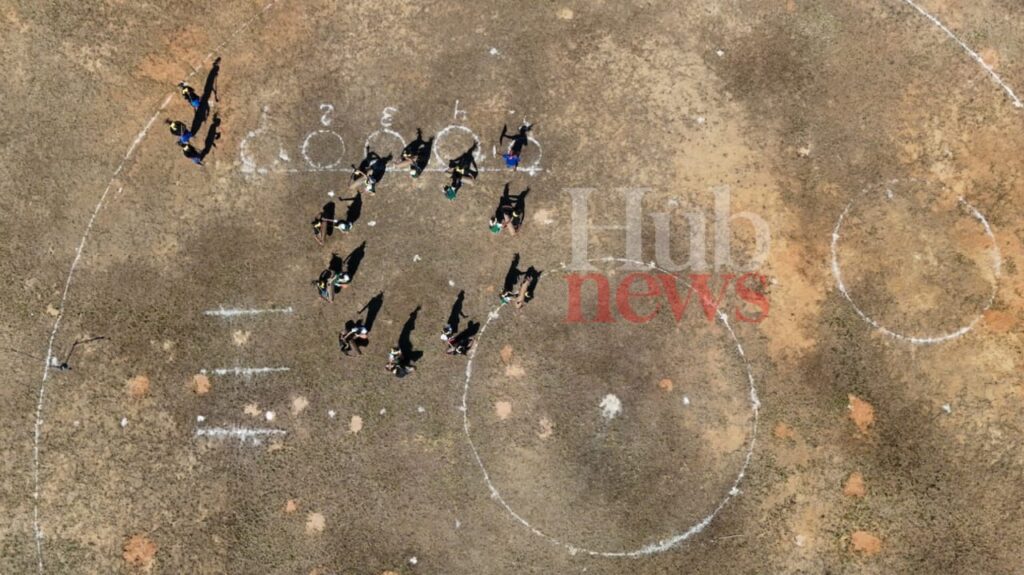
Further, the Master Chef Competition cum Indigenous Slow Food competition known as Brenga (which is cooked in bamboo tubes) and We∙tepa (which is steamed on low fire by wrapping with banana leaves) was also organized.
Read: SPL 2024: Lajong & Mawlai maintain dominance with wins over Ryntih & Nangkiew Irat
WATCH:
Find latest news from every corner of Northeast India at hubnetwork.in, your online source for breaking news, video coverage.
Also, Follow us on-
Twitter-twitter.com/nemediahub
Youtube channel- www.youtube.com/@NortheastMediaHub2020
Instagram- www.instagram.com/ne_media_hub
Download our app from playstore – Northeast Media Hub



